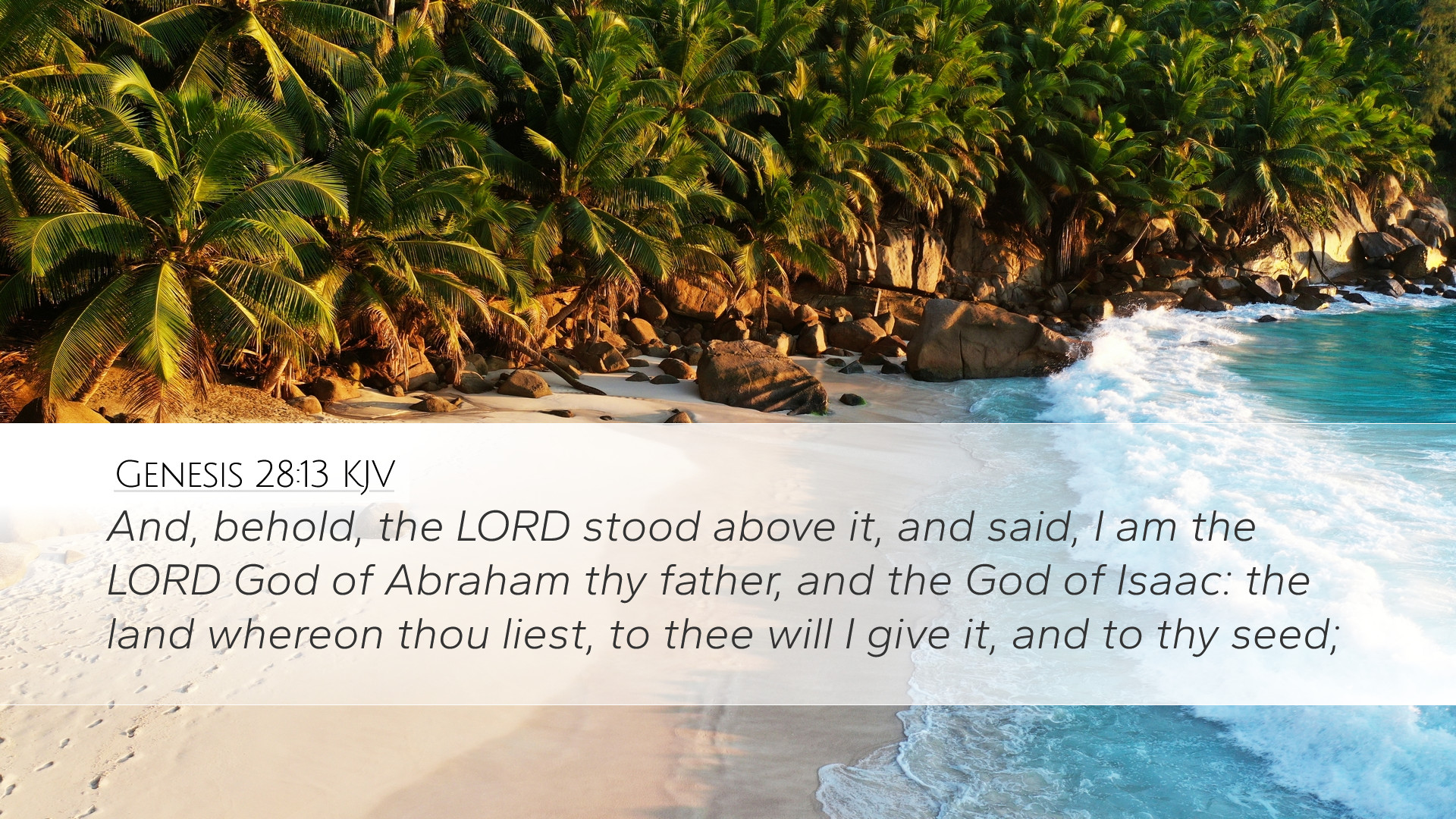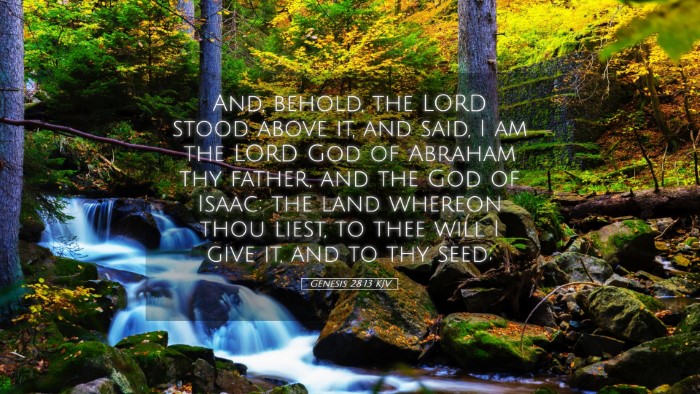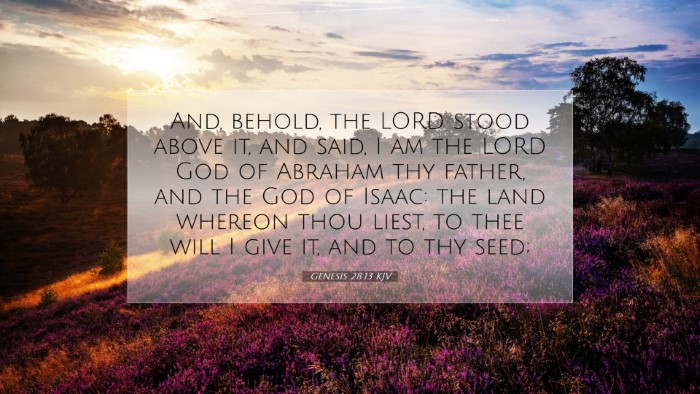Commentary on Genesis 28:13
Verse Text: "And, behold, the LORD stood above it, and said, I am the LORD God of Abraham thy father, and the God of Isaac: the land whereon thou liest, to thee will I give it, and to thy seed."
Introduction
This verse is pivotal as it concerning God's covenant relationship with Jacob, positioning him as the heir to the promises previously made to Abraham and Isaac. It illustrates God's active presence and deep commitment to His chosen family. Through this encounter at Bethel, Jacob receives profound assurance of God's providence and his own identity within the unfolding narratives of biblical history.
Contextual Analysis
In Genesis 28, Jacob is fleeing from Esau, having just deceived his father Isaac and robbed his brother of the blessing. Assisted by the Lord amidst his turmoil, Jacob's journey signifies more than a physical transition; it represents spiritual growth and transformation. Matthew Henry notes that in Jacob's darkest hours, God meets him with grace and revelation.
Theological Insights
- The Lord's Assurance: The phrase 'the LORD stood above it' conveys God's sovereignty. Adam Clarke emphasizes that God makes Himself known in Jacob's weakness, illustrating that humanity encounters divine presence amid struggles.
- Covenant Identity: God's proclamation, 'I am the LORD God of Abraham thy father, and the God of Isaac,' situates Jacob within a lineage of faith. Albert Barnes highlights the continuity of God's promises, linking Jacob's destiny to the covenant established with his ancestors.
- The Land Promise: The assurance of land serves as a central theme in the Abrahamic covenant. The land whereon thou liest symbolizes God's unfolding plan for Israel, indicating that Jacob's lineage will inherit a promised territory and, by extension, blessings.
Commentary Excerpts
Matthew Henry: "In this vision, Jacob was given a new perspective of his relationship with God and a tangible promise that reaffirmed his purpose and calling. It speaks to the assurance believers find in God’s promises even when the circumstances appear dire."
Albert Barnes: "The promise of the land signifies not only a geographical space but also the spiritual inheritance awaiting Jacob's descendants. It serves as a reminder that the reach of God's fidelity extends beyond individual lives into the collective historical journey of the faithful."
Adam Clarke: "God revealing Himself at this moment not only comforts Jacob but marks the initiation of a transformation in Jacob's character. The unfolding of this narrative underscores the biblical motif of divine grace meeting human frailty."
Applications for Today
- Faith in Transition: Pastors can encourage their congregations to see that God meets us in times of uncertainty and change, just as He did for Jacob.
- Understanding Covenant: Theology students should take notice of the continuity in God's promises across generations which gives weight to understanding Old Testament covenants as the foundation of New Testament faith.
- Assurance in Adversity: This text is meaningful for anyone facing hardship, indicating that God’s purposes are woven into our struggles, providing hope and direction.
Conclusion
Genesis 28:13 encapsulates a moment of divine revelation and promise that has ripple effects throughout the biblical narrative. As Jacob encounters God, he is reminded of his covenant identity and divine legacy. For the faithful, it reveals that God's promises stand firm, illuminating their paths amid various life's uncertainties. This verse calls us into a deeper understanding of God's faithfulness and invites us to trust in His grand narrative.


